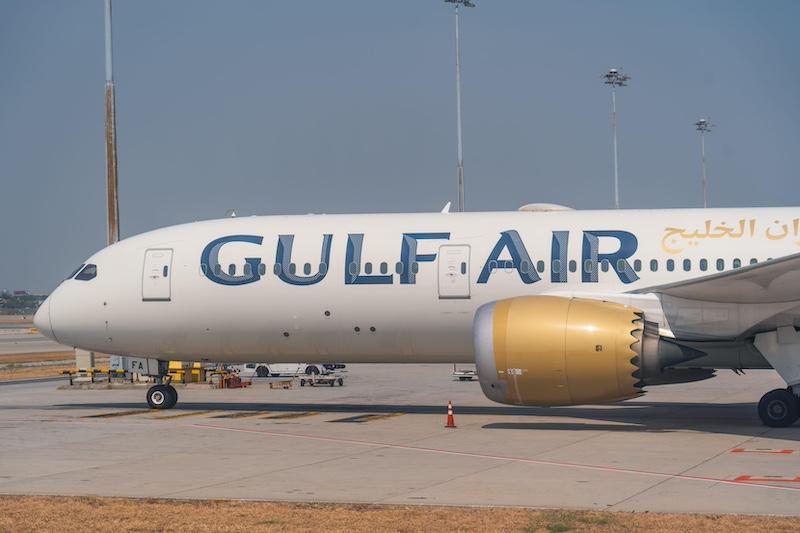
SINGAPORE—Gulf Air CEO Jeffrey Goh hopes advancements in data analytics and artificial intelligence (AI) can give the airline better clarity over the reliability and availability of engines in service, including when leased-in engines will arrive.
His comments come as Bahrain's flag carrier grapples with ongoing issues plaguing its Boeing 787-9s' Rolls-Royce Trent 1000 engines, which are keeping at least two of its fleet grounded.
Speaking at the Future Travel Experience event in Singapore, Goh says shop visits for Gulf Air's engines are lasting more than 200 days. When the engines are eventually returned, 30% of them are then sent back to the MRO providers because they do not pass the required tests.
The lack of parts and therefore aircraft capacity is stemming growth, Goh says, adding that he thinks AI can help overcome these operational and technical problems.
The Aviation Week Network Fleet Discovery database shows Gulf Air has eight in-service 787-9 and two more grounded.
Beyond engines, Goh hopes AI will can give airlines and airports more clarity on slot allocation, which is still managed manually. This could allow the airline to operate into an airport with better “commercial sense.”
“Putting the group together, we have a lot of skills and synergies to be extracted. I think we have still a long way to learn of how we can actually bring that seamlessness into the airline and the airport together, because often we don't see eye to eye on what AI technology can do,” Goh says.





